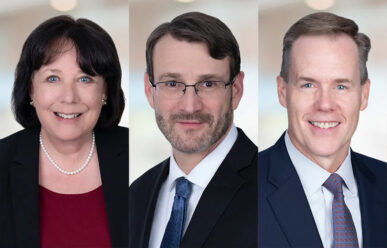The False Claims Act (FCA), originally conceived by Abraham Lincoln during the Civil War, has been an effective tool for the Government to recover funds fraudulently taken from all types of government programs from national security to Medicare for over a century and a half. But like all statutes, the FCA has its limitations, including time. Until recently, it was believed that with little exception fraudulently taken taxpayer funds could be recovered only for a period of six years prior to the filing of a complaint. 31 U.S.C. § 3731(b).
Enter into the FCA arena a little used or known law from the 1940s, the Wartime Suspension of Limitations Act (the “WSLA”). The WSLA tolls the statute of limitations in cases of fraud committed during wartime against the Government “until five years after the termination of hostilities as proclaimed by the President or by a concurrent resolution of Congress.” 18 U.S.C. § 3287. Several courts, including the United States Court of Appeals for the Fourth Circuit, have held that the wars in Iraq and Afghanistan triggered the WSLA such that FCA claims have been tolled since 2001.[i] Additionally, there does not appear to be limitations to the type of FCA fraud at issue. As one Court held in June, the WSLA is not limited to “war frauds”, i.e. “frauds related to the administration of the war” but applies to all types of FCA cases, including fraud against medical programs like Medicare and Medicaid.[ii]
The application of the WSLA to FCA cases is undergoing an evolutionary process, and courts have much more work to do on the proper application of the WSLA to the FCA’s statute of limitations as litigants test its limits. At the very least, these recent decisions demonstrate that claims long thought to have been extinct can be potentially resurrected and that existing FCA claims can reach fraud that occurred twelve years ago in some cases.
[i] U.S. ex rel. Carter v. Halliburton Co., 710 F.3d 171, 181 (4th Cir. 2013) (“The WSLA tolls the applicable period for a specified and bounded time while the country is at war”); U.S. v. BNP Paribas SA et al., 2012 U.S. Dist. LEXIS 110293, at *16-17 (S.D. Tex. Aug. 6, 2012) (applying the Wartime Suspension of Limitations Act (“WLSA”) as amended by the Wartime Enforcement of Fraud Act of 2008, 18 U.S.C. § 3287, to suspend the statute of limitations for FCA cases, finding that the U.S. was at war in 2005, and that the wars had not yet ended); see also U.S. v. Temple, 147 F. Supp. 118, 121 (D. Ill. 1956) (“[C]ourts which have considered the question have unanimously held that the [WLSA] tolled the limitations section of the [FCA]”).
[ii] See U.S. ex rel. Paulos v. Stryker Corp., 2013 U.S. Dist. LEXIS 82294, at *51-52 (W.D. Mo. June 12, 2013).



